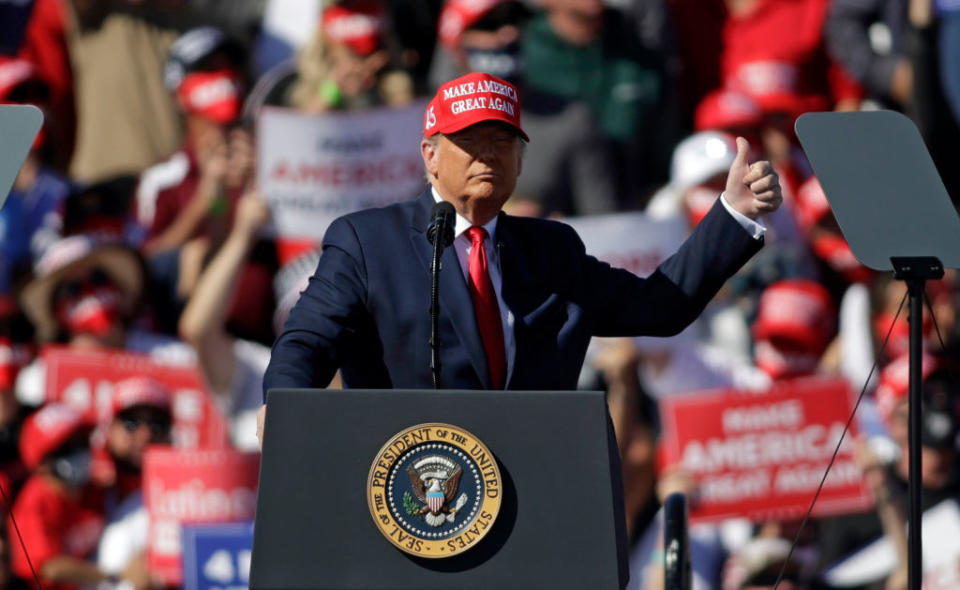US Election 2020: Everything you need to know
US presidential elections are a global event. It’s not just the pageantry and spectacle that garners the interest, but there are real consequences for other nations stemming from who sits in the White House.
This election has been one of the most divisive and bitterly contested in modern American history, and is happening in the middle of a pandemic no less.
Mercifully for many, it will be all but over after today. Here’s a quick look at everything you need to know.
What time do the polls close?
As most Australians were waking up this morning, voting in eastern states was nearing a close. The first polls will close at 10am AEDT (6pm ET in the US) in parts of Indiana and Kentucky while a vast majority of states close an hour or two later. From midday is when you’ll need to be paying attention.
Over on the west coast, polls in California won’t close until 3pm AEDT (8pm local time) and Alaska will bring up the rear when its polls close at 5pm AEDT. By this time, we might even have a winner.

When will we know the winner?
Normally, the US television networks would be crowning a victor by mid to late afternoon in Australia.
That could still happen today if one candidate romps home. The polls indicate that’s only really a possibility for Joe Biden who could sew things up if he wins a couple big battle ground states like Florida, Georgia, Pennsylvania, North Carolina or Arizona where polls are ostensibly very tight.
However if the Electoral College vote is very close and it comes down to the outcome of one or two states, it could take a few more days to sort out. If the courts get involved like they did 20 years ago, it could be weeks before be get an official result.
The high number of mail ballots is also expected to slow things down because they take longer to process and some key states have rules preventing them starting that process until election day.
More than 63 million mail ballots have been cast ahead of election day, with more than 29 million outstanding, according to the US Elections Project.
How does the election work?
It’s hard to imagine a more complex and convoluted electoral system than what will unfold today.
Known as the Electoral College, each state has a number of ‘electors’ based on population. Voters aren’t actually voting directly for candidates but these electors officially give their vote to a candidate in accordance with their state’s popular vote.
The electors tend to be a mixture of state and locally elected officials, party activists, local and state celebrities, and even ordinary citizens. Fun fact: Hilary Clinton is an elector for the state of New York this time around.

In all but two states, no matter how close the vote is, the winning candidate takes all Electoral College votes on offer. This is how Donald Trump can eke out another victory – winning by razor thin margins in a handful of states while still collecting millions fewer votes overall.
There are 538 electoral votes and to reach the White House a candidate has to win 270, which is half of the electoral college votes plus one.
Does the popular vote matter?
It does not. In 2016, Hilary Clinton won nearly 3 million more votes than Donald Trump but he received 304 electoral votes to her 227. (The remaining seven were what’s known as “faithless electors” who went rogue and didn’t vote for either candidate out of protest.)
You can read more about the Electoral College system here. If a repeat of 2016 happens with an even wider margin in the popular vote, you can expect there to be plenty of talk about reforming it.
Could the Democrats win the senate?
While the presidential race will get most of the attention today, there’s plenty more at stake. The Democrats are tipped to hold onto a majority in the House of Representatives but they’ll be hoping to also wrestle control of the senate.
If they don’t, it will be almost impossible for a potential Joe Biden administration to pass any big legislation. If the Republicans hold the senate but lose the presidency, they are expected to stymie any further economic stimulus, which would weigh on global share markets.
With the chamber now split, 53-47 in favour of Republicans, three or four seats will determine senate control, depending on which party wins the White House. The vice president breaks a tie in Senate votes.
Some of the nation’s most well known senators — such as Lindsey Graham in South Carolina and Susan Collins in Maine — face strong reelection threats. Only two Democratic seats are being seriously contested, while at least 10 Republican seats are at risk.
“The senate is absolutely critical,” Dr Emma Shortis from RMIT University tells Yahoo News Australia. “The senate is crucial to getting any kind of actual, substantive stuff done.
“Winning the senate will be absolutely critical to getting Biden’s agenda through, things like his climate policy, healthcare, basically all his big ticket reforms.”
But he’s got to win first.
Where can I follow live results of election?
It will be hard to avoid it today. It’s by far the biggest day on the calendar for the US television networks who will try to outdo each other with the latest technology and whizz-bang graphics.
As precincts in each state begin reporting vote counts, the networks’ dedicated teams of wonks, boffins and analysts will begin crunching the numbers and calling states for either candidate as they fall.
You can follow along at our live blog here.
Do you have a story tip? Email: newsroomau@yahoonews.com.
You can also follow us on Facebook, Instagram and Twitter and download the Yahoo News app from the App Store or Google Play.





